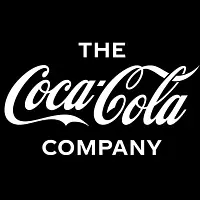
The Coca-Cola Company
🇺🇸 United States
Unclaimed Profile
This Company Profile has not yet been claimed. To claim the profile, please click here.
Some Numbers About The Coca-Cola Company
Brands (19)
About (The Coca-Cola Company)
The Coca-Cola Company is one of the world’s largest and most recognized beverage companies, known globally for its iconic flagship product, Coca-Cola. Founded in 1886 in Atlanta, Georgia, the company has grown from a single soda brand into a multinational corporation with a vast portfolio of beverages that span multiple categories, including soft drinks, water, sports drinks, juices, teas, coffees, and energy drinks. The company's journey began when pharmacist Dr. John Stith Pemberton developed the original formula for Coca-Cola, which was marketed as a tonic for various ailments. In 1888, Asa Griggs Candler acquired the rights to Coca-Cola and turned it into a business, establishing it as a leading carbonated drink across the United States by the turn of the century.
Over the decades, The Coca-Cola Company has diversified its product offerings, primarily through acquisitions and development of new products. In addition to Coca-Cola, its most popular products include Sprite, Fanta, Dasani, Powerade, Minute Maid, and more recent additions like Smartwater and Simply. Its product expansion reflects the company’s goal of providing “a drink for every occasion,” catering to consumers with varying tastes, health concerns, and cultural preferences. In recent years, Coca-Cola has made considerable efforts to meet the growing demand for low-calorie, sugar-free, and organic options, resulting in products like Coke Zero and Diet Coke as well as smaller portion sizes and reformulated recipes in response to health trends.
The company operates in over 200 countries, reaching billions of consumers around the world through its extensive network of bottling partners. These partners are independently owned businesses responsible for bottling, distribution, and local marketing, creating a unique business model known as the Coca-Cola system. This system allows the company to maintain a flexible, scalable approach to distribution and marketing that meets specific regional needs and preferences. In fact, Coca-Cola’s ability to adapt its branding and marketing to different cultures and languages has been a key driver of its international success, and the brand is often associated with positive values such as happiness, sharing, and unity.
Sustainability and corporate responsibility have become integral parts of Coca-Cola’s mission in recent years. The company has launched numerous initiatives aimed at reducing its environmental impact, focusing on goals such as water stewardship, sustainable packaging, and reducing its carbon footprint. For example, Coca-Cola has committed to collecting and recycling a bottle or can for every one it sells by 2030, a goal aimed at reducing plastic waste and fostering a more circular economy. Coca-Cola’s “World Without Waste” program is a major part of this sustainability effort, encompassing initiatives to improve recycling rates and increase the use of recycled materials in its packaging.
In terms of corporate social responsibility, Coca-Cola has a strong focus on community engagement, supporting programs related to education, health, and economic development. The Coca-Cola Foundation, the philanthropic arm of the company, provides grants to organizations around the world, addressing issues from access to clean drinking water to youth empowerment and women’s economic advancement. Coca-Cola’s initiatives often align with the United Nations Sustainable Development Goals, further emphasizing the company’s commitment to positive global impact.
Innovation remains a core element of Coca-Cola’s strategy. It frequently introduces new flavors and limited-time editions of its products, leveraging consumer insights and technology to anticipate and respond to changing tastes. In recent years, Coca-Cola has also expanded its digital presence, investing in e-commerce and direct-to-consumer platforms. For example, the company launched Coca-Cola Freestyle, a self-service fountain that allows users to create custom drink mixes, reflecting the brand’s commitment to consumer choice and personalization.
The Coca-Cola Company’s marketing is legendary, built on decades of iconic advertising campaigns that emphasize themes of joy, connection, and nostalgia. Its use of Santa Claus in advertisements during the 1930s helped shape the modern image of Santa in popular culture, and the 1971 “Hilltop” commercial, with its memorable song "I'd Like to Buy the World a Coke," remains one of the most famous ads in history. Coca-Cola also invests heavily in sponsorships and partnerships, including long-standing relationships with major sporting events like the FIFA World Cup and the Olympic Games, positioning itself as a brand that champions diversity and global unity.
Despite its success, Coca-Cola has faced challenges over the years, particularly around health and environmental concerns. Critics argue that sugary beverages contribute to obesity, diabetes, and other health issues, and there has been growing pressure from both consumers and governments for Coca-Cola to address these issues. In response, the company has worked to provide healthier options and more transparent labeling, while also supporting initiatives promoting active lifestyles.
In summary, The Coca-Cola Company is a vast and complex global corporation that continues to adapt and evolve. Its product innovation, marketing prowess, and commitment to social and environmental causes have helped it maintain its position as a leader in the beverage industry. Today, Coca-Cola remains one of the most recognized brands in the world, with a rich history and a forward-looking approach focused on creating value for consumers, communities, and shareholders alike. Through its vast portfolio of beverages and its sustainability and health initiatives, Coca-Cola continues to aim for a future where it remains both relevant and responsible in the eyes of its global audience.